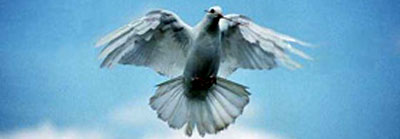Passionate believer in dialogue
by Cyprus Mail
05-Mar-2008
HOSSEIN Alikhani, an Iranian-born citizen of Cyprus who was a committed advocate of dialogue between civilisations, passed away this week after a long illness. He was 63.
Alikhani was a successful businessman whose Nicosia company dealt in oilfield equipment. But he was best known as a passionate believer in the necessity for improved understanding between the peoples of the world, and in particular between Muslim countries and the West.
To further this goal, he established in 1995 the Centre for World Dialogue [1], an independent, non-profit research institution that publishes a quarterly journal, Global Dialogue, and has hosted in Cyprus a series of international conferences. These meetings were attended by such luminaries as Helmut Schmidt, the former Chancellor of West Germany, the late Benazir Bhutto, former Prime Minister of Pakistan, and Samuel Huntington, the distinguished political scientist most famous for his controversial “clash of civilisations” thesis. Huntington argued that international affairs after the Cold War would be characterised by tension and conflict between cultural and civilisational blocs, not least between the West and the Islamic world.
The ethos of Alikhani’s Centre might have been defined in contrast to any such civilisational clash, the necessity – and certainly the desirability – of which it rejected. Yet, in keeping with Alikhani’s belief in the importance of dialogue and open debate as a means of resolving conflicts, Huntington was invited to deliver the keynote speech at the Centre’s October 1997 Nicosia conference, “Political Islam and the West”.
Alikhani was especially keen to see rapprochement between the United States and his homeland, Iran. One of his most notable efforts towards this end was his convening of a groundbreaking meeting in July 1998 at the Paris headquarters of UNESCO between Abbas Abdi, one of three student leaders who organised the 1979 takeover of the US embassy in Tehran, and Barry Rosen, one of the US hostages. Time magazine described their encounter as “a dramatic meeting ... and a powerful symbol of reconciliation”.
Alikhani sought improved US-Iranian relations despite enduring an experience that might have caused many another person to become inveterately anti-American. In 1992, after planning to ship oil equipment to Libya, he was lured to the Bahamas in an undercover sting operation by US customs agents and abducted to the United States. There, he was charged with violating US sanctions against Libya – even though he was neither a US citizen nor a resident of the United States.
Alikhani spent more than three months in pre-trial detention in Florida, much of the time shackled to a bed. He was eventually released after accepting a token charge and being sentenced to time served.
One consequence of Alikhani’s ordeal was the expertise he acquired on US sanctions legislation. This found expression in two substantial books, In the Claw of the Eagle (1995), and Sanctioning Iran: Anatomy of a Failed Policy (2000). The former focused on US sanctions against Libya and also provided a fascinating and disturbing account of his abduction and incarceration.
After failing to win redress in the US courts for his treatment, Alikhani turned to those of Iran, which in 2003 awarded him $550 million in damages against the United States. Last year, Iran mooted the seizure and public auction of the US embassy in Tehran with a view to paying Alikhani’s compensation. (To date, the property has not been sold.)
Alikhani’s legal battle against the United States was a quest for justice, not revenge. He felt he had been wronged by the extraterritorial application of US law. Principle required that this injustice not go unchallenged. But Alikhani’s personal circumstances never clouded his desire for reconciliation between the United States and Iran, to which he remained irrevocably committed. “One day the US will have a relationship with Iran,” he said last year. “Maybe not in my lifetime, but they will do it.”
He is survived by his wife, his son and his two daughters.


